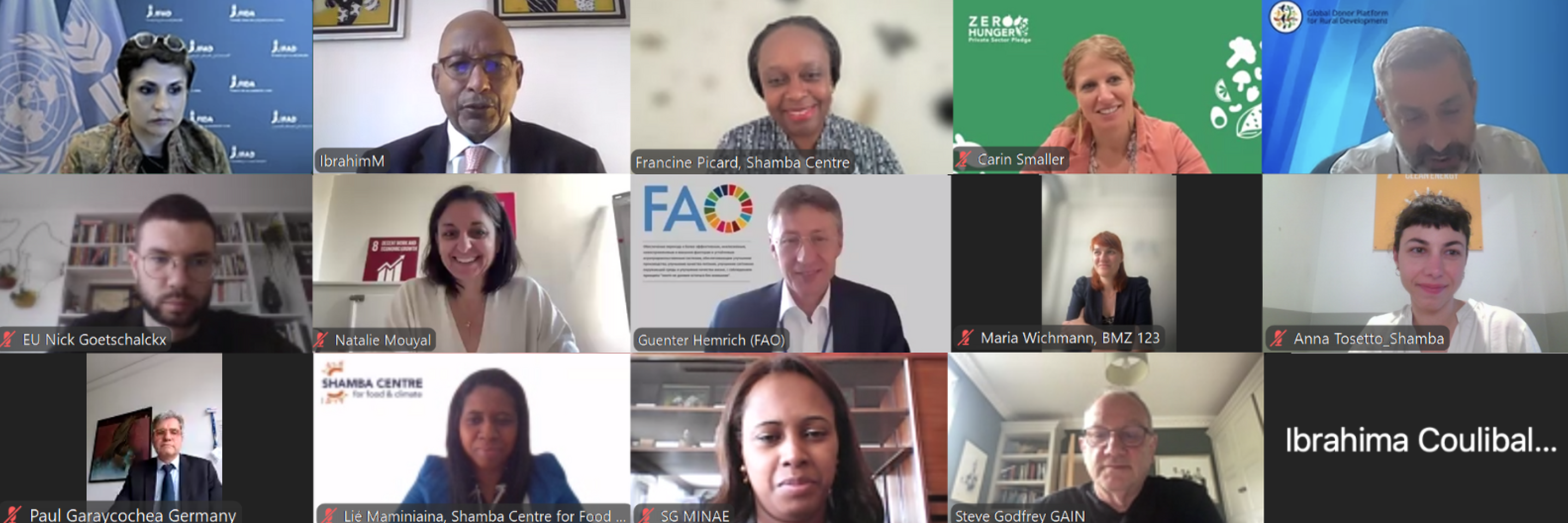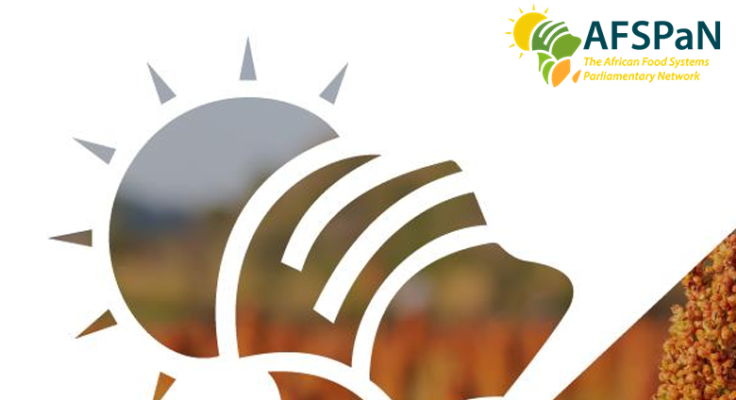
Advisory Group endorses the Zero Hunger Coalition’s strategic direction
Members of the new Advisory Group re-affirmed their commitment to the Zero Hunger Coalition and its efforts to catalyse coordinate action end hunger. During the first meeting of the Group, led by Dr Ibrahim Mayaki, Chair of the Zero Hunger Coalition, members endorsed the Coalition’s strategic direction for 2024-2025 which focuses on three priorities:
Expanding partnerships with new and emerging alliances
Deepening country-level engagement
Driving more private sector pledges in line with priority intervention areas
In his opening remarks, Dr. Mayaki, welcomed the Coalition Advisory Group and outlined the Coalition’s role and ambition: “We have a collective ambition; we want to build synergies in an existing landscape where synergies are not frequent. Food system transformation underlies many ongoing crises that must be tackled in unison. For this reason, coordination and convergence are extremely important.”
The Zero Hunger Coalition, launched during the United Nations Food Systems Summit in 2021 as part of Action Track 1, serves as a platform to catalyse coordinated action to transform food systems and achieve zero hunger. It brings together 30 governments, 27 civil society organisations and 11 multilateral organisations. In addition, through the Private Sector Pledge, 51 companies have committed over US$ 600 million to end hunger through projects in 48 countries.
Expanding partnerships with new and emerging alliances
A number of new alliances have proliferated recently, many of which share similar objectives as the Zero Hunger Coalition. Members agreed on the importance of developing joint initiatives with these alliances that can capitalise on the unique strengths of each partner. In addition, the Coalition will reinforce existing partnerships with organisations whose mission continues to align with the Coalition.
The Coalition will continue to serve as a platform to share knowledge, good practices and explore new ideas.
Deepening country-level engagement
With its evidence-based and costed roadmaps, the Zero Hunger Coalition provide countries with guidance on the most effective strategies to tackle hunger and malnutrition sustainably. To date, roadmaps have been developed for Ethiopia, Malawi and Nigeria and are currently underway for Bangladesh, Benin, Cambodia, Democratic Republic of Congo, Madagascar and Zambia.
As a next step, the Zero Hunger Coalition will operationalise the roadmaps in four priority countries: Malawi, Nigeria, Madagascar and Zambia. This will include efforts to mobilise financial resources for projects directly aligned with the roadmap’s recommendations.
In addition, the Coalition will promote dialogues and peer-to-peer exchange between countries. The first such exchange took place between Benin and Madagascar and generated positive feedback among participants.
Driving more private sector pledges
Finance is needed where it can have the greatest impact and target the most vulnerable sectors. Through its Private Sector Pledge, the Coalition mobilises private sector financing and ensures its alignment with the priorities defined in its roadmaps.
As part of its 2024-2025 strategy, the Coalition will focus on the national private sector to secure new commitments in Madagascar, Malawi and Nigeria. In addition, it will implement a monitoring system to track the conversion of pledges into meaningful investment
Members of the Advisory Group
The Coalition’s Advisory Group brings together a wide array of representatives working at the national, regional and international levels to achieve zero hunger. This includes national authorities from Germany, Madagascar and Bangladesh as well as the European Union.
International organisations serving on the Advisory Group include representatives from FAO, WFP and IFAD while civil society and the private sector are represented by the Pan African Farmers Organization (PAFO), the Global Alliance for Improved Nutrition (GAIN), the Zero Hunger Private Sector Pledge and the Private Sector Mechanism (PSM). The Global Donor Platform for Rural Development (GDPRD) represents the donor community.
The Advisory Group will meet at the end of 2024 to review its progress and discuss future projects.
Members of the Zero Hunger Coalition Advisory Group




